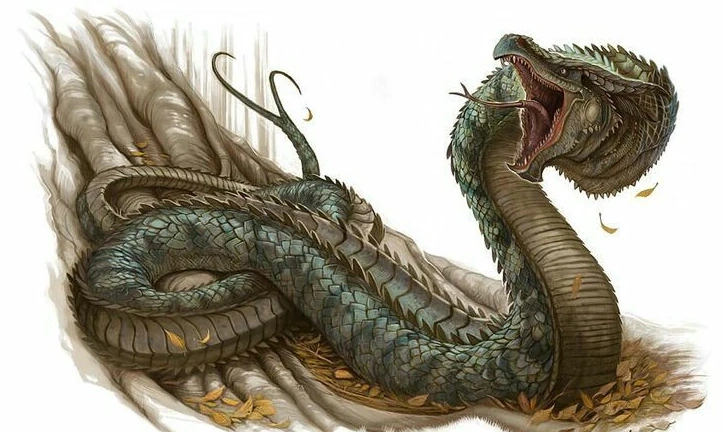I’m getting back into the novel I’m writing after some time away with my play and work kerfuffles and other things. To get back into it, I re-read what I had written and, at the same time, I’ve been reading a book about a Hertfordshire dragon-slaying legend and watching ‘Knight of the Seven Kingdoms’ - so knights and such have been on my mind a little and I thought I’d share this little section.
Previously, Sam and Nat have had an argument about Nat wearing his London frock to church. It’s Easter, a man called Mr Stevenson did the lecture and stones from the ceiling fell in, prompting a mass panic (this really did happen). That night, Nat wakes up and goes into Sam’s room for a chat. That’s this section. Sam tells a story, inspired by his own love of chivalric stories, it’s also his way of apologising to Nat for the argument earlier.
It seemed important to have a little scene where the brothers bond, especially as I am going to test their relationship later on. It’s pretty much a first draft but any comments would be welcome.
Natty lay in bed and stared into the darkness. He started to jiggle his leg, rolled over a few times, slipped the blankets and coverpane aside, slid lightly onto the floor and pulled out the jordan from underneath his bed. He made water with strained eyes and utmost concentration in the dim light, scared of the shame from any loose drops, before he pushed the pot back under.
Now he was standing, he looked towards the door. He lifted one leg to climb back into bed but instead of getting back to bed he took a big step forward, carefully feeling out the way ahead with his toes before letting his heels connect with the floorboards. He crept with exaggerated care, as if someone could see him towards the door. He opened it slowly, wincing as the creak grew louder and more musical. Lifting one leg up, he waited for the shout or the nifty clip round the ear and not hearing it, snuck across the corridor and stood in front of the door there. It was not closed properly and Natty put her ear against it to listen for the rhythmic breathing that signified sleep. Hearing nothing, he pushed his lips into the gap and whispered loudly.
“Sam, are you awake?” He paused and listened for an answer and looked back along the corridor to see if anyone else had heard him before puckering up against the semi-open door.
“Sam!”
“What?”
“Are you awake?”
A pause.
“Yes.”
Another pause.
“I’m coming in anyway.”
Natty only opened the door enough to let him squeeze in and closed it completely afterwards. He crept to Sam’s bed even more carefully, the floor being strewn with items, in particular, piles of books from the shop that could fall with a crash at the slightest touch. Having navigated the scylla and charybdi of Samuel’s room, Natty reached his goal and clambered onto Sam’s bed, who moved up to make space and held the blankets up to allow Natty to crawl in.
They lay next to each other for a while, looking through the darkness and listening to each other’s breathing.
“Do you want to hear a story?” Sam asked casually, as if uninterested in the answer.
“I do, I do!” Whispered Nat enthusiastically, bouncing on the bed.
“Settle down then.”
“Is this a book story, a Bible story or a Sam story?”
“It’s a Sam story, but I have naturally been inspired by stories I’ve read.”
“Are there dragons?”
“You shall never know if you don’t let me tell it.”
“I hope it does. I love the ones with dragons.”
“Lay still and listen. Attend, oh ye little children who thirst for tales of adventure and exploits of bravery. Be ye ever so small or humble in station, ye may achieve great feats and accomplish great deeds. There was once a noble knight of diminutive stature, Nathaniel of Lichfield was his name.”
“Nathaniel, really?”
“Yes and he was a complete minnow, a squab, a very ant-like knight. His helmet was an acorn’s cup, his greaves were made from the bones of a cat and his shield was a shiny farthing. It’s a surprise his feet even touched the floor, his legs were so short. He’d climb a ladder to mount the mastiff that was his steed.”
“I’m not that small.”
“You’re not, but Nathaniel of Lichfield was. You’d have been a giant to him. The only figure he’d have been a giant to was the famous Tom Thumb. However, as small as he was in body, he was great in courage, impudence and fame.”
“So, I’m brave?”
“Nathaniel of Lichfield was brave,” smiled Sam, digging Natty in the ribs with his thumb. “Nathaniel of Lichfield was so brave that when the villagers of Elford reported the existence of a terrible wyrm.”
“A terrible worm, was he really that short?”
“Not worm, wyrm.”
“Wirrum?”
“Wyrm.”
“You promised me a dragon.”
“I promised nothing. Besides, a wyrm is a dragon, only one with no legs.”
“A dragon with no legs? That’s silly.”
“On the contrary, it’s all the more terrifying. A wyrm slithers along like the hated serpent, his skin oozes foulness and poison which kill plants and gives the cattle murrain.”
“What’s murrain?”
“Oh it’s terrible. It means a sheep can’t bleat and turns a cow inside, out. From the wyrm’s lair springs a rot which seeps into land, water and air. The rot enters people’s homes and creeps up their walls, slides into their very souls where it sits, a cocoon of madness and evil.”
“And Elford had one of those?” Nat shivered.
“Yes, but this was long ago, in the reigns of good King Richard and bad King John. Robin Hood even tried to defeat the terrible wyrm, he used to practise his archery in the words nearby but his mighty arrows only bounced off the creature’s terrible scales. It was then they called Nathaniel of Lichfield.”
“Did I go?”
“I don’t know if you went, but Nathaniel of Lichfield immediately donned his armour and climbed upon his noble steed, a mastiff called Hermsprong. As he rode, the great dog ululated a song of glee and freedom until they reached Elford. When he got there, what do you think he saw?”
“The worm?”
“Yes, the wyrm, wrapped around the tower of St Peter’s Church, the mass of its great, stinking body resting on the roof. When the wyrm saw Nathaniel of Lichfield, he began to laugh. As he laughed his scales tensed up and great stones flew from the tower and roof, embedding themselves in the blessed ground surrounding it.”
“Was it like..?”
“Exactly so. The great beast mocked our hero, claiming that he would swallow him in one gulp, leaving him at the mercy of the monster’s bile and digestive juices.”
“That’s horrid! What did I do?”
“Nathaniel of Lichfield was not afraid, not he but he was also no fool, so he rode away and across the river.”
“How do you ride across a river?”
“He was on a dog and the humble canis is a natural swimmer. Nathaniel did this because he knew that wyrms can’t cross running water. He watched the wyrm uncoil itself from the church and slither down the lane to its lair. That’s when Nathaniel of Lichfield acted. He rode Hermsprong back across the river, dismounted and led him to a clump of shrubbery. Then he directed the dog to dig a hole large enough for him to crawl into. He then ushered the dog away and waited. He waited till his legs were saw and his feet were numb. He waited as long as Mr Stevenson speaks. Then he heard it, shlurp, schlurp… schlurp, schlurp.”
Natty looked at Sam confused.
“That’s how the worm moved,” Sam explained, wiggling and making the schlurp sound. Natty joined in and the two boys wiggled and schlurped for a short while.
“So the worm came schlurping onward and Nathaniel called out to it from his hole. The worm went closer to investigate. You know what wyrms like more than anything else?”
“Eating people?”
“They do love that, but more than eating, they enjoy gold and treasure, especially fairy treasure. That’s important to Nathaniel’s ruse. So Nathaniel called to the wyrm in a little fairy voice and the great beast responded, asking who was calling him. ‘I’m Lichwort,’ he said in his fairy voice, ‘a poor fairy lost from his fairy band. Could you help me carry all this fairy gold back to my fairy circle?’ The wyrm couldn’t resist temptation such as that, and being a creature full of greed, he agreed to help, even though he planned to do no such thing. The wyrm came closer to the hole.”
“Schlurp, schlurp, schlurp.”
“And as the creature’s huge head hovered over the hole, Nathaniel steeled himself and gripped his lance tightly. When he saw the huge, yellow eye hanging above him, Nathaniel thrust his lance deep into it. He kept pushing through the eye and into the brain. Brain effluvia poured down the spear and onto Nathaniel’s hands.
“What’s effluvia?”
“It’s like muck.”
“Ewww,” Nat giggled and pretended to wipe his hands.
“And with that, the Wyrm was dead and Sir Nathaniel of Lichfield was the hero to all. The citizens of Elford lifted him on their shoulders and the faithful hound, Hermsprong was given a nice, juicy bone.”
The two boys lay back on the pillow and shared the night’s silence.
“Did you see Mr Wakefield?” Sam asked.
“When he squeezed through the window?”
“I think he lost a shoe.”
They smiled into the dark at the memory. Then Sam started laughing, it was lower than his speaking voice, slow and loud like a baby hippopotamus. Nat started to laugh also, a trill over Sam’s base. When Sam stopped laughing, he took a deep breath.
“He was ‘of good courage, wasn’t he?” he said, starting to laugh again. The bed began to shake. “St Mary’s was a great house of defence.” Sam started to laugh again, Nat couldn’t help joining in, even as he was puzzled at the joke.
There was a knock at the floor and both boys sat up, the laughter strangled in their throats. Nat slid out of the bed, hopping lightly on the chill floorboards and scampered silently to the door.
“I forgot one detail about the wyrm,” Sam said, “his name.”
“What was his name?”
“Samuel.”
Nat slipped out the door, padded across the landing in his bare feet and back into to his cold bed.









